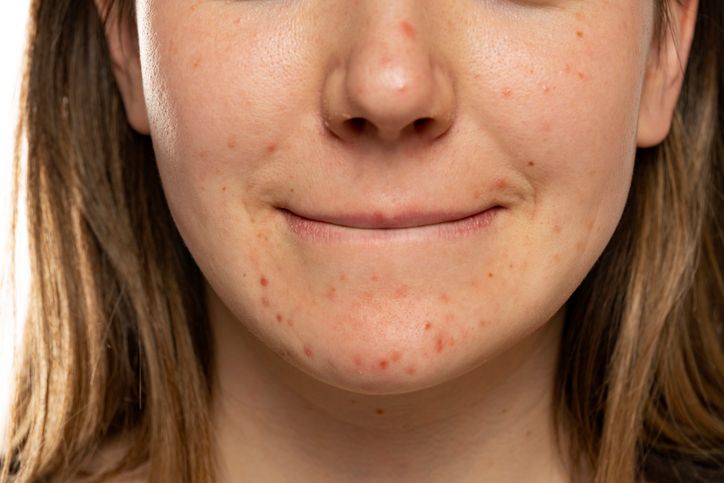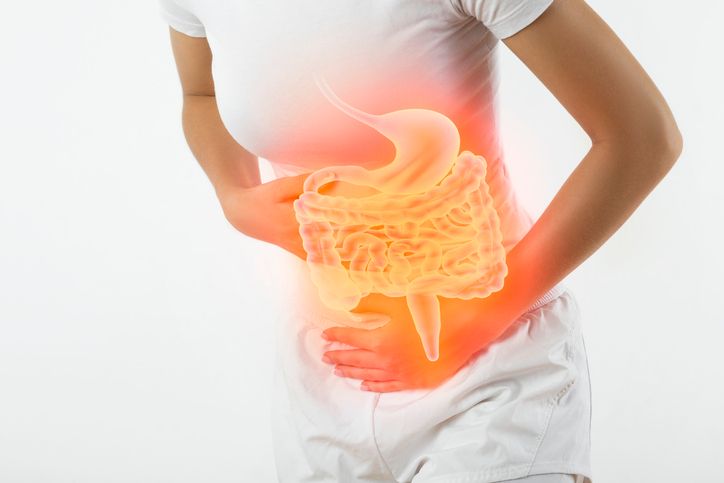
- Home
- Trend
- Weight Loss Strategies
- Acne Tips
- Hair Health Information
- Blemish Removal Tips
- Acne Scar Removal Tips
- Muscle Building Techniques
- Intimate Care Tips
- Postpartum Intimate Care
- Eye Bags Wiki
- Tips for Face Slimming
- Secret of Permanent Hair Removal
- Breast Enlargement Tips
- Cure to Snoring
- Marionette Lines
- Skin-Tightening Secrets
A face full of acne is one of the most dreaded skin issues today! When you can’t figure out the cause of your skin problems—or why it’s happening to you—it can be depressing and make you want to avoid going out. If you’ve been trying to combat acne with antibiotics, countless skincare products, toners, and face washes with no luck, this article might just help you identify what’s gone wrong and finally turn things around. Get your skin back on track and flawless enough to make models jealous!
What Is Considered As Severe Acne? Is It The Same As Acne-Prone Skin?

Not exactly. A "ruined face" doesn't necessarily mean acne-prone skin, but it’s more like skin that's persistently troubled by breakouts and clogged pores—difficult to treat and often left bumpy and textured. Excess oil production, clogged pores, bacterial infections, or a weakened immune system can all trigger chronic skin inflammation and acne. Bad habits like squeezing pimples or wearing masks for extended periods can leave stubborn acne scars and marks. Some cases are even due to rosacea, which causes redness, bumps, and uneven texture that seriously affect appearance.
Is Improving Gut Health The Key To Preventing Severe Acne?

Yes, gut health is closely linked to your skin. Traditional Chinese Medicine often notes that your internal health shows on your skin. One of the best ways to improve gut health? Change your diet. Eating greasy, spicy food every day or constantly smoking and drinking will never give you glowing skin. Even seemingly healthy foods like salads can cause problems if drenched in oily dressings, which stimulate excess oil production and clog pores. Instead, go for high-fiber foods and probiotics to improve digestion and reduce constipation, helping your body eliminate toxins that can worsen skin conditions.
免費體驗
Acne Treatment
1 Minute Self-Registration
Date should not be before minimal date
Do Dermatologists Recommend Cutting Out These 4 Foods To Fix Acne?
Yes. Besides greasy, spicy food, dermatologists also suggest avoiding eggs, dairy, sweets, and gluten. Eggs and dairy can trigger skin allergies. Gluten—found in many grains—is a protein that some people can’t digest properly, leading to immune responses like inflammation and red bumps. Too much sugar worsens inflammation in the body, aggravating acne and conditions like eczema. Sugar also reduces the skin’s antioxidant capacity, making it prone to free radical damage, dullness, wrinkles, and aging. Try switching to oat milk, skipping pastries and chocolates, and cutting back on bubble tea. Adjusting your diet can often work better than relying on medication alone.
If Exfoliation Prevents Clogged Pores, Why Does It Make Acne Worse?
While exfoliation helps remove dead skin that clogs pores, skin experiencing severe breakouts is already fragile—dry, inflamed, and red. Scrubs and physical exfoliants increase friction and further irritate the skin. Initially, you might feel some relief, but after washing your face, things often get worse—more redness, dryness, and itchiness. Also, avoid using tea tree oil on widespread acne. It’s only effective on isolated pimples. For large inflamed areas, tea tree oil can make things drier and more painful. Dry skin types should exfoliate only once a month to avoid damage.
Do Facials Help With Severe Acne? What About Extraction?
Facials can deeply hydrate and improve your skin, but be careful with extractions. Using tools to squeeze out pimples can damage already inflamed skin and leave scars or pits. If your whole face is covered with breakouts and red marks, extractions can make things worse, not better. The process can also be painful. So yes to facials, but no to extractions.
免費體驗
Acne Treatment
1 Minute Self-Registration
Date should not be before minimal date
How Should You Cleanse Your Face When Dealing With Severe Acne?
Use mild, lightweight cleansers. Always lather your cleanser into foam before applying it to avoid harsh scrubbing. Switch to doctor-recommended cleansers—if your skin has flared up, it means your usual products aren’t working. Don’t rub your face with a towel—pat it dry with a soft cloth instead. Consider using disposable face towels for hygiene. Also, regularly clean anything that touches your face—makeup brushes, pillowcases, etc.—at least once a week.
What Other Skincare Step Is Essential For Preventing Severe Acne?
Hydration! When skin lacks moisture, it becomes dull, rough, and more prone to damage. Dry skin also triggers excess oil production, clogging pores and causing breakouts. Use toners and masks to restore moisture and balance oil levels. Keeping skin hydrated also protects it from external irritants and lowers sensitivity.
Are There Any Precautions For Using Face Masks On Acne-Prone Skin?
Absolutely. Always start with clean skin—oil, dirt, and dead skin can mix with the essence and clog your pores. Sheet masks with hydrating ingredients are the best option. Follow the instructions—usually 15–20 minutes max. Leaving it on too long can cause dehydration. After removal, pat in the essence. If you have oily skin, rinse off excess serum to avoid triggering more breakouts.
免費體驗
Acne Treatment
1 Minute Self-Registration
Date should not be before minimal date
Can Exercise Help Reduce Acne?
Yes! Exercise boosts circulation, delivering more oxygen and nutrients to your skin, which improves its tone and radiance. Sweating also helps detox and clears pores. It regulates hormones and lowers stress—both major acne triggers. Try stretching, yoga, or Pilates at night to improve your skin and sleep quality.
Can I Get Laser Treatments For A Ruined Face?
Laser therapy is great for acne scars—stimulating collagen to smooth out pits and fading pigmentation. But if your skin is currently inflamed, dry, and sensitive, it’s not suitable. Laser heat can cause swelling, irritation, and worsen dehydration. Fragile skin has low healing power and is more prone to side effects. Focus on hydration and skin barrier repair first—once your condition stabilizes, then consider laser.
Is Vitamin C Good For Acne-Prone Skin?
Vitamin C is a powerful antioxidant that protects skin from free radicals and boosts collagen and brightness. It helps reduce fine lines and improve dullness. However, Vitamin C is unstable and can irritate sensitive skin. For beginners, lower concentrations are best—20% and above can cause discomfort. Always use sunscreen with Vitamin C, and consult a dermatologist before trying any new product, especially if your skin is reactive.
免費體驗
Acne Treatment
1 Minute Self-Registration
Date should not be before minimal date
Is Acne Related To Psychological Stress?
Yes. While mask-wearing and diet are common causes, stress is often overlooked. In high-pressure environments like Hong Kong, anxiety and poor sleep increase stress hormones, weaken the immune system, and worsen acne. Try meditation, exercise, music, talking to loved ones, or traveling to relax and improve your skin.
Can’t Do Laser? What’s The Best Medical Treatment? — Try Perfect Medical’s Acne Treatment!
For those struggling with a face full of acne, it can feel hopeless—and stressful! But stress worsens breakouts, creating a vicious cycle.
Perfect Medical’s Acne Treatment uses a gentle spiral suction system to extract dirt, oil, and dead skin cells, clearing pores and tackling the root of the problem. This is followed by a medical-grade serum infusion to deeply hydrate your skin and balance oil production—minimizing breakouts.
It also stimulates collagen growth to improve elasticity and shrink pores, leaving your skin clearer, bouncier, and glowing. If you're struggling with acne, click the link below to register and enjoy a free trial session! Don’t miss this opportunity!
Register Now: Perfect Medical Acne Treatment免費體驗
Acne Treatment
1 Minute Self-Registration
Date should not be before minimal date
FAQ

What daily habits can help improve problematic skin?
To improve troubled skin, it's essential to take care of it consistently. This includes cleansing, moisturizing, applying sunscreen, and using repair products. Avoid touching your face with your hands or rubbing the skin harshly. Make sure you get enough rest and sleep every day, manage stress, and keep your mood stable. Your living environment should also be clean—stay away from polluted, hot, humid, and poorly ventilated spaces. When it comes to food, limit your intake of sweets, greasy, and spicy foods. It’s also best to cut out eggs, dairy, and gluten-containing foods. You can take an allergy test to identify foods you may be sensitive to, in order to reduce the impact of food sensitivities on your skin. As for skincare, makeup, and cleansing products, it’s wise to consult a dermatologist before choosing what to use. By sticking to these habits, you’ll gradually be able to say goodbye to problematic skin.
What are some examples of low-fat foods that are good for the skin?
Deep-sea fish rich in Omega-3 fatty acids, like salmon, can help maintain the skin’s elasticity and radiance. Nuts that are high in antioxidants and vitamin E, such as almonds, walnuts, flaxseeds, and pumpkin seeds, are also great for skin health. Legumes are a good source of protein—steamed tofu can be a healthy alternative to greasy rice or noodle dishes. Fruits and vegetables are a must, as they are rich in vitamins. For those who are sensitive to gluten in baked goods or bread, oats can be a great substitute, and brown rice is also a good option. Green tea is another excellent antioxidant source. Low-fat milk can be beneficial too, as long as you're not lactose intolerant.
How often should you use face masks?
For people with problematic skin, using a face mask once or twice a week is enough. Overusing face masks—especially if not rinsed off thoroughly—can leave leftover essence on the skin, which may lead to breakouts, blackheads, or eczema. The type of mask and how often you use it should also depend on your skin type and current skin condition. For example, if your skin is dry, a hydrating mask can help restore moisture. There are different types of masks—sheet masks, clay masks, and gel masks. Sheet masks have the smallest molecules, which allows them to penetrate deeper into the skin. Clay and gel masks have larger molecules that work more on the surface. However, clay masks can dry out the skin, so using them once a week or every two weeks is best. Be especially careful when choosing a mask and avoid those with irritating ingredients, as they can worsen your skin condition.
Why does drinking more water help improve bad skin?
Drinking enough water helps keep the body well-hydrated and also moisturizes the skin from within. This is especially important if you live in a hot or dry environment—hydration can reduce facial dryness and signs of aging. Water also promotes better digestion and bowel movement, which helps detox the body. Fewer toxins in the body mean fewer breakouts and less inflammation on the skin. If you want radiant, elastic, and flawless skin, drinking water is a cost-effective and effective skincare method—far more budget-friendly than expensive facials.
What are the four essential skincare steps?
Troubled skin can be frustrating, but sometimes going overboard with products and treatments isn’t the solution. Often, the problem lies in not following the right skincare routine. Remember: less is more! Step one is cleansing—just once in the morning and once at night is enough. Avoid over-cleansing. Step two is moisturizing to maintain your skin’s oil-water balance. Those with acne-prone skin should go for lightweight, non-greasy products. While applying moisturizer, gently massage your skin to help it absorb the product better. Step three is sun protection—apply sunscreen thoroughly to all areas, without missing any spots. If you sweat a lot or are under the sun for extended periods, reapply every two hours. Step four is repair, using serums or treatment products to improve sensitivity, enlarged pores, acne, blackheads, or wrinkles. This step helps reduce the recurrence of bad skin.








